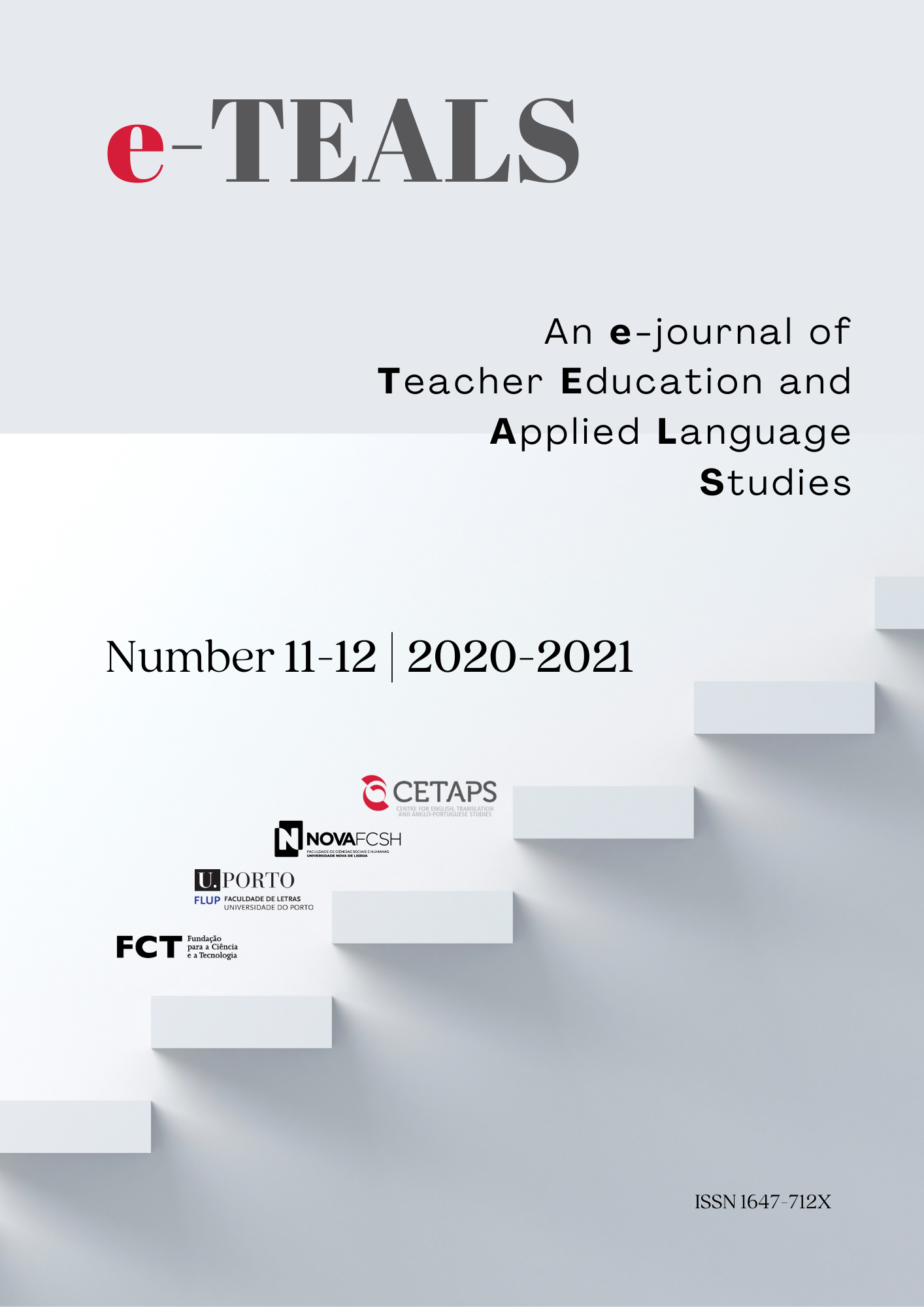Literature and Intercultural Communicative Competence (ICC)
Promoting ICC Through a Content-Based Approach To “My Son The Fanatic” (H. Kureishi)
DOI:
https://doi.org/10.34619/pwgj-aqi5Keywords:
Literary text, Intercultural Communicative Competence, Third space, Content-based approachAbstract
Literary texts have an increasingly prominent role in EFL (English as Foreign Language) classes. Accordingly, more academic studies about the role of literature in foreign language learning have been published in the past decade. Nevertheless, how literature can promote the development of Intercultural Communicative Competence (ICC) has not been sufficiently explored. The research question in this study was: How can teaching literary texts in the EFL classroom promote ICC? The study was carried out in a 12th-year class in which the students studied the short story “My Son the Fanatic” by Hanif Kureishi (1997). I argue that a content-based approach that promotes the development of the students’ affective and cognitive dimensions during reading may develop ICC. This required the adoption of a reading model comprised of two stages, the first of which is affective and spontaneous, while the second is reflexive, requiring supporting viewpoints with evidence and discussing, as well as comparing them with one’s peers, which is one of the tenets of constructivism and, therefore, a content-based approach. The transformation of attitudes and beliefs, which in turn causes changes in more spontaneous reading happens in a third space, which is hybrid because it does not correspond fully to the students’ culture nor to those represented in the text. By adopting this approach, the students were able to reflect on their own culture, become aware of how their beliefs, behaviours and identities condition their interpretation of the short story and, as a result, develop several domains of ICC.

Downloads
Published
Issue
Section
License

This work is licensed under a Creative Commons Attribution-NonCommercial-NoDerivatives 4.0 International License.





